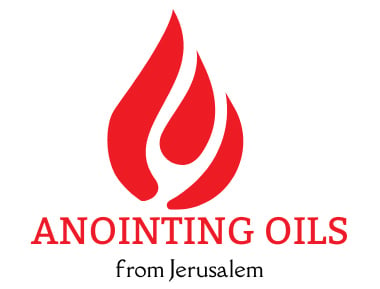Welcome to Zak`s Jerusalem Gifts - Best Holy Land Shopping
Welcome to Zak`s Jerusalem Gifts - Best Holy Land Shopping

The practice of anointing with sacred oils is a tradition that dates back to ancient times and is deeply rooted in the Judeo-Christian heritage. In Jerusalem, the heartland of biblical history, this tradition continues to thrive, offering a tangible connection to the sacred rituals of the past. The use of anointing oils is mentioned numerous times in the scriptures, symbolizing consecration, healing, and the presence of the Holy Spirit. Today, Jerusalem anointing oils are experiencing a resurgence in popularity as believers around the world seek to revitalize their faith through these time-honored customs.
Crafted with care from olives grown in the fertile lands of Israel, these oils are often blended with traditional herbs and spices mentioned in the Bible, such as myrrh, frankincense, and cinnamon. The process of creating these oils is steeped in prayer and intention, with manufacturers viewing their work as a service to the church. As these sacred oils are used in worship, baptism, confirmation, and prayer for the sick, they serve as a sensory reminder of God’s promises and the continuity of His love throughout the ages. The anointing act is not only a ritual but a profound spiritual experience that believers claim brings them closer to the divine, fostering a sense of peace and spiritual healing.
Made in Israel: How Jerusalem’s Holy Oils Are Bringing Healing to the Faithful
The significance of Jerusalem anointing oils being made in Israel cannot be overstated. For many Christians, the land of Israel is not just a geographical location but a symbol of their faith’s roots and God’s enduring covenant with His people. The fact that these oils are produced in the very place where Jesus walked and taught adds a profound depth to their use in religious practices. The authenticity of these oils, coupled with the blessings of the land, is believed to carry the power of healing and restoration for the body and soul. This belief is not just spiritual but is also supported by the therapeutic properties of the essential oils used, which have been known to promote physical and emotional well-being.
The impact of these holy oils on the faithful is significant. Reports from various congregations indicate that the use of Jerusalem anointing oils has contributed to a deeper sense of community and spiritual revival. The act of anointing one another serves as a powerful form of ministry, fostering unity and compassion within the church body. As these practices are incorporated into modern worship, they bridge the gap between ancient traditions and contemporary faith expressions, allowing believers to experience their religion in a more profound and personal way. The oils from Jerusalem are not just products; they are considered vessels of the Holy Land’s spiritual legacy, bringing the healing touch of this sacred place into the lives of the faithful around the world.
In conclusion, Jerusalem anointing oils represent a sacred tradition that continues to breathe life into the practices of the church today. Made with reverence in the land where Christianity has its roots, these oils are more than mere symbols; they are seen as conduits of healing and spiritual enrichment. As the church looks to its past to find strength for the future, the use of these holy oils serves as a reminder of the enduring power of faith and the unbroken chain that links modern believers to their ancient forebears. Whether used in personal devotion or communal worship, Jerusalem anointing oils stand as a testament to the timeless and universal nature of the Christian journey toward wholeness and holiness.